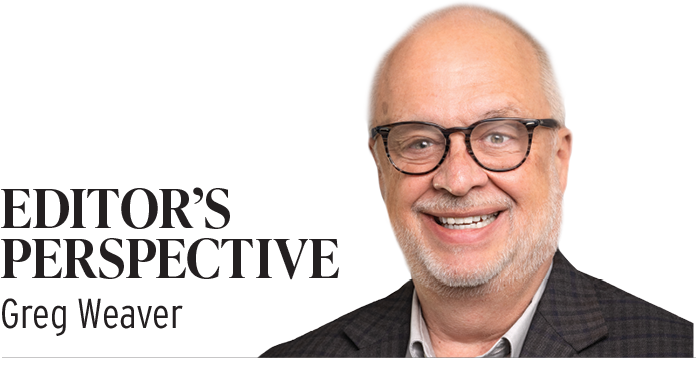
Euractiv +
For individuals
Euractiv Pro
For corporations
Looking to access paid articles across multiple policy topics?
Interested in policy insights for EU professional organisations?
A staggering percentage of people in the Netherlands use herbal products in combination with other medications, without first discussing it with their healthcare professionals, the Dutch Medicines Evaluation Board (MEB) told Euractiv.
Underwritten Produced with financial support from an organization or individual, yet not approved by the underwriter before or after publication.
72% of users of herbal remedies do not make their GP aware of their use of alternative medicines.
A staggering percentage of people in the Netherlands use herbal products in combination with other medications, without first discussing it with their healthcare professionals, the Dutch Medicines Evaluation Board (MEB) told Euractiv.
Research commissioned by the MEB revealed that almost a third of Dutch people have used herbal remedies in the past year. Of these, 81% used herbal products in combination with medications, often without fully being aware of any possible risks.
While such combinations are not necessarily a problem, the MEB launched a campaign to raise more awareness on this topic.
“Most combinations will cause no harm. However, there are exceptions,” a spokesperson for the MEB told Euractiv. In some cases, the herbs could potentially decrease the intended effect of a medicine or increase its side effects.
The MEB therefore thinks it’s wise for patients and healthcare professionals to be aware that such interactions may be possible. Research commissioned by the board revealed that 72% of users of herbal remedies do not make their GP aware of their use of alternative medicines.
“This supports the idea that users themselves should be alert to potential risks of combinations. In addition, increased awareness among healthcare professionals about high-risk combinations can be useful,” the spokesperson said.
They added that doctors and pharmacists could potentially warn patients about the use of certain herbs before they start using certain medications.
St. John’s wort’s negative impact
The Dutch National Institute for Public Health (RIVM) had previously called for caution when using supplements containing St. John’s wort, a plant native to Europe with yellow star-shaped flowers. While the RIVM said it doesn’t know how many people use herbal preparations with the plant, it said people use it to help them sleep better.
However, the institute said St. John’s wort makes some medicines less effective.
“Herbal preparations containing St. John’s wort reduce the effect of chemotherapy or agents against fungal or viral infections,” the RIVM said. On the other hand, it added that it can enhance the effects of antidepressants or tranquillisers.
While the focus of the MEB’s latest research was not on the use of herbal products instead of allopathic drugs, a previous Dutch study revealed that the Netherlands Pharmacovigilance Centre Lareb registered 1,727 adverse drug reactions (ADRs) coming from 823 herbal products between 1991 and 2021.
The authors noted that the public often perceives herbal products as less toxic than conventional drugs despite both of them containing pharmacologically active ingredients that can give rise to ADRs.
They argued that the inclusion of herbal medicinal products and herbal supplements in pharmacovigilance systems is important because a systematic approach to collecting data relevant to these substances helps doctors and regulators prevent harm.
Campaign highlighting risks
To raise awareness of the combination of herbal medicines with prescribed drugs, the MEB organised a campaign targeting healthcare professionals and users of herbal products about the potential risks of such combinations. The response has been positive, and healthcare workers noted that they found the campaign relevant as their basic knowledge on this subject was limited.
A spokesperson for Starodub, a Dutch-based company that assists pharmaceutical companies with regulatory requirements, said it was good to have such an awareness-raising campaign.
“However, such public announcements should always be done with care, as the danger exists that patients or citizens get scared of something that is still very unclear,” the Starodub spokesperson said. They added that the best approach is for similar campaigns to be based on the most recent data.
“The campaign has been an effective start in the Netherlands for increasing awareness about the topic,” the MEB’s spokesperson told Euractiv. “We think that increased attention in the future is useful to further increase awareness of the subject and notice effects in practice,” they added.
[Edited by Vasiliki Angouridi, Brian Maguire | Euractiv’s Advocacy Lab]
Updated: 01-10-2024
Truck drivers celebrate as Romania, Bulgaria join borderless Schengen area
End of Russian gas via Ukraine sparks unease in eastern Europe
Milan says no to all outdoor smoking in Italy’s toughest ban
Macron acknowledges error on early elections in New Year’s speech
Georgians ring in New Year with mass pro-EU rally
A massive diabetes challenge and pharma-tech moonshots, Europe starts 2025 in launch mode
A tale of two presidencies: 2025 and a possible Pharmaceutical Package deal
Russian gas flows via Ukraine for last day as transit deal crumbles
Iran confirms arrest of Italian journalist Cecilia Sala
US Treasury says Chinese hackers stole documents in ‘major incident’
Milan says no to all outdoor smoking in Italy’s toughest ban
01/01/2025
3 min. read
A massive diabetes challenge and pharma-tech moonshots, Europe starts 2025 in launch mode
31/12/2024
6 min. read
A tale of two presidencies: 2025 and a possible Pharmaceutical Package deal
31/12/2024
6 min. read
Industry calls on Jørgensen to publish Electrification Action Plan within first 100 days
16/12/2024
3 min. read
Antibiotics business model should be the flipside of pharma norm, says Shionogi Europe CEO
06/12/2024
5 min. read
Parliament can bring all stakeholders around the table to work on Alzheimer’s, says MEP Jerković
30/11/2024
7 min. read








 When it comes to government transparency laws, Indiana often ranks near the bottom in terms of what it requires public officials and political activists to disclose.
When it comes to government transparency laws, Indiana often ranks near the bottom in terms of what it requires public officials and political activists to disclose.
